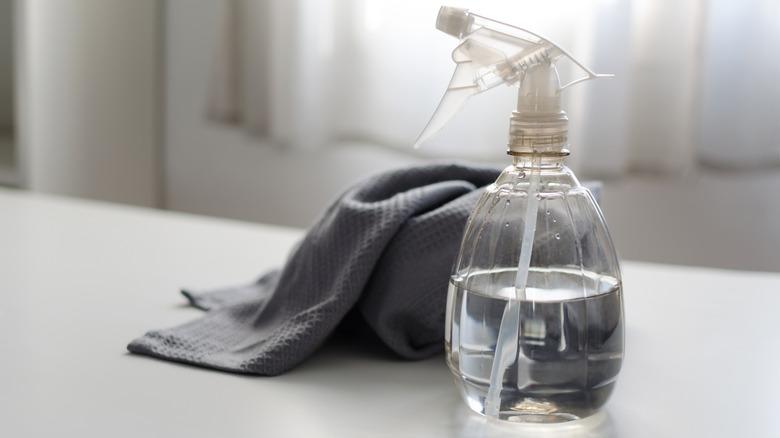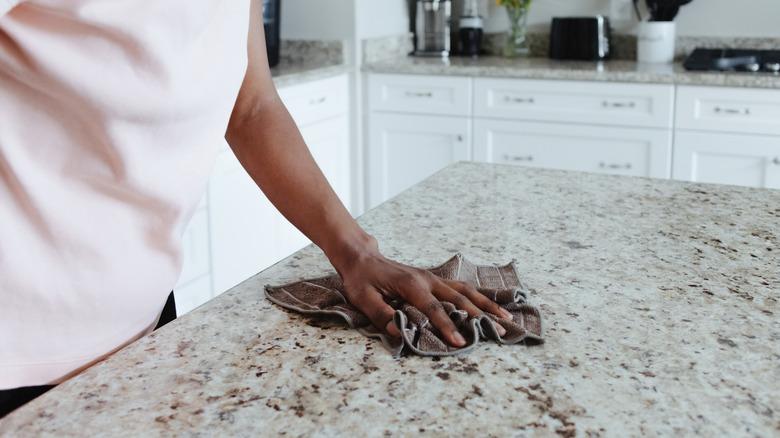The Types Of Countertops You Should Never Clean With Vinegar
We may receive a commission on purchases made from links.
Vinegar is a go-to cleaning agent for a whole host of reasons: It's effective, safe for kids and pets, inexpensive, and easy to use. But there are some kitchen and bath countertops that you should never use vinegar on, primarily natural stone. It sounds crazy, stone is well, hard as a rock! How could vinegar harm granite or marble? It's all about chemistry. Vinegar is acidic, and certain stone materials will break down when they come in contact with acids. Marble and limestone are very susceptible to acids, and, for that reason, you should never use vinegar on countertops made from those materials. But even granite can be harmed, and the sealer used on granite can degrade when exposed to vinegar.
Soapstone is apparently not quite as susceptible as marble and limestone. Even so, companies that sell soapstone countertops do not recommend vinegar cleaning solutions. Soapstone needs just dish soap, water, and perhaps mineral oil. Ceramic tile is made with a variety of finishes, from high gloss to pottery-like, and using vinegar to clean it is not recommended. Vinegar can also degrade the grout between the tiles. Countertops made from manmade materials such as Corian and plastic laminate (sometimes called by the brand name Formica) will stand up to vinegar cleaning solutions without any problems. It is also safe to use when cleaning wooden countertops. Let's further explore the problem and what you can do instead.
What's the problem and what's the alternative?
Acidic chemicals on natural stone can break down the stone; a result called etching. The surface becomes rough and often has a white hue. So, how do you clean stone countertops? The best policy is to use a pH-neutral cleaning solution, dish soap mixed with warm water, for example, and a multifiber cloth. Avoid abrasive cleansers and abrasive pads as they can dull the finish. If there is a stain, use a baking soda and water paste to gently remove the stain. An important note is that just because a product is called an "all-purpose cleaner" does not mean it is safe for every countertop, especially natural stone. Bleach must also be avoided on natural stone. To be ultra-safe, there are specially-made stone countertop cleaning products, like this one from Weiman that are specifically formulated just for safely cleaning stone countertops.
Corian and plastic laminate countertops are fine with vinegar, but avoid abrasive pads and cleansers with them as well. They will dull the polished finish of the material. Vinegar cleaning hacks are everywhere, but be careful about using them on your countertops. Countertops are such an important part of your kitchen and are such a big investment that taking the time to be certain about how to clean them is critical.

